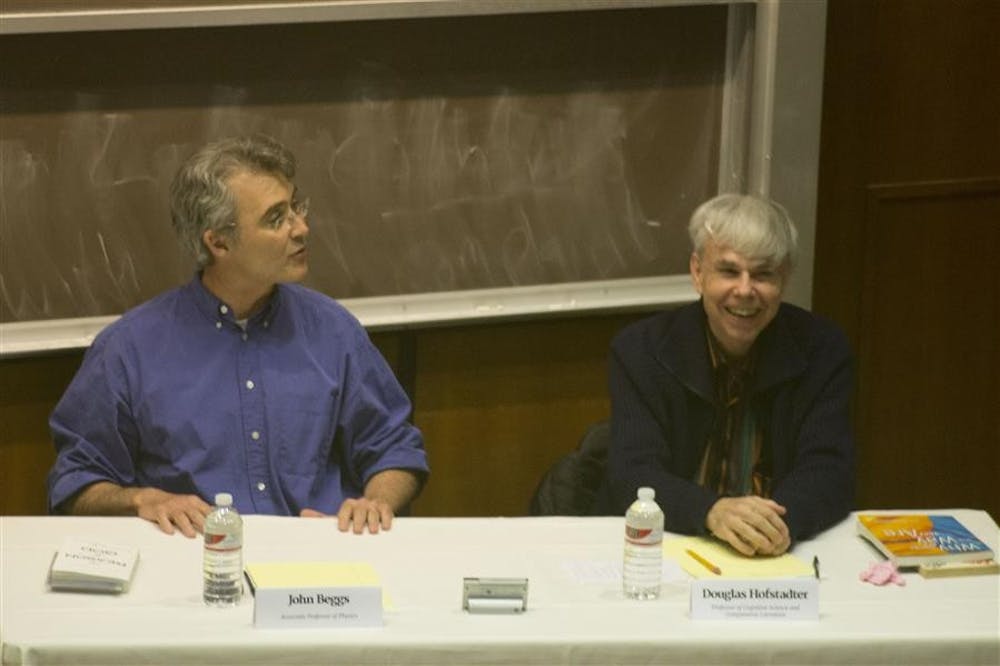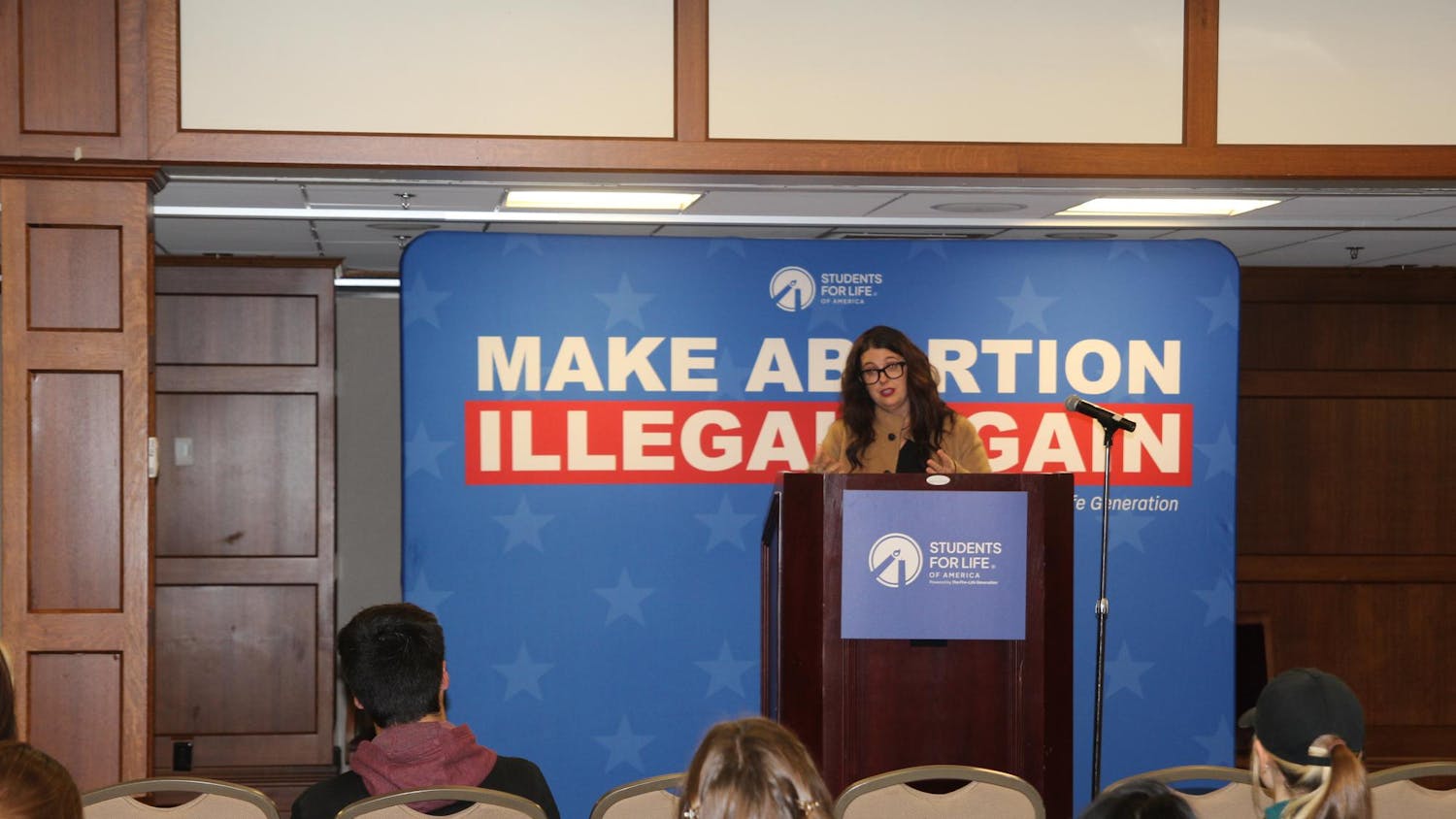Four IU scientists spent Wednesday night trying to answer one of the modern age’s most challenging questions: can belief in God and science be reconciled?
The Secular Alliance at IU sponsored the panel, “Are Science and Belief in God Compatible?” The audience packed a lecture hall in the Kelley School of
Business.
Orion Day, president of the Secular Alliance, introduced the speakers and moderated the discussion.
John Beggs, an associate professor of physics, launched the discussion by posing the question of whether science could explain if bayonetting a baby is wrong.
“Science can’t really answer that question. It can’t answer what I should do with my life,” Beggs said. “And I don’t think sociobiology can answer why we shouldn’t have genocide.”
Beggs said he didn’t think a belief in God and science needed to be
divorced.
He cited examples of award-winning scientists such as Francis Collins, director of National Institutes of Health, who is a practicing Evangelical.
“I don’t think it’s essential that one has religious beliefs in order to answer some of the questions John raised,” physics professor Timothy Londergan said, referring to life after death and morality.
Londergan said he thought belief in both God and science was compatible as long as the scientist followed the rules of scientific method.
He said it is “extraneous” to ask about a scientist’s personal beliefs.
He compared such a distinction to the Germans in the 1930s when they divided science into Aryan science and Jewish science. Londergan called such divisions “disastrous.”
“To me, the universe is all determined by these microscopic things happening, and that doesn’t leave room for intervention, like John said, for angels or anything else of that sort,” said Douglas Hofstadter, professor of cognitive science and comparative literature. “I don’t think having a cold is the result of some kind of divine intervention or any other thing. I think it’s because of microbes.”
Referring back to Beggs’ original bayonetting babies example, Hofstadter said it had nothing to do with God.
“It has to do with not wanting to kill,” he said. “It comes from empathy.”
David Bender, a Ph.D. student of computer and cognitive science, said he was a Christian but has since rejected his former faith.
He said a belief in God and in science is not logically incompatible, but there’s definitely a conflict.
“I don’t require that my moral sense be timeless,” Bender said.
Beggs clarified for the panelists that he did not believe an atheist to be incapable of being a moral person. He even said they could be more moral than him, joking that it wouldn’t be hard to do.
“Science sometimes oversteps the bounds, and starts to make ethical statements both in evolution and in neuroscience,” Beggs said. “And there I think there is a conflict.”
Londergan said he agreed with Beggs, but that he also believed scientific advances would soon challenge fundamentalist beliefs in religious, absolute rules that are prioritized over secular laws.
He said scientists who believe in a young earth and a global flood are vanishing.
“What I kept thinking was it was secularism against Christianity,” said Tim Hobbs, Ph.D. and physics graduate student, after the panel discussion.
“I imagine, for instance, Muslims or Jews have beliefs that are not necessarily secular, but not Christian.”
Hobbs said he hoped to see similar panels again, but with more variety of ideas.
“It would be nice to see those perspectives represented in the future,”
he said.
Scientists discuss religious and scientific beliefs

Get stories like this in your inbox
Subscribe



